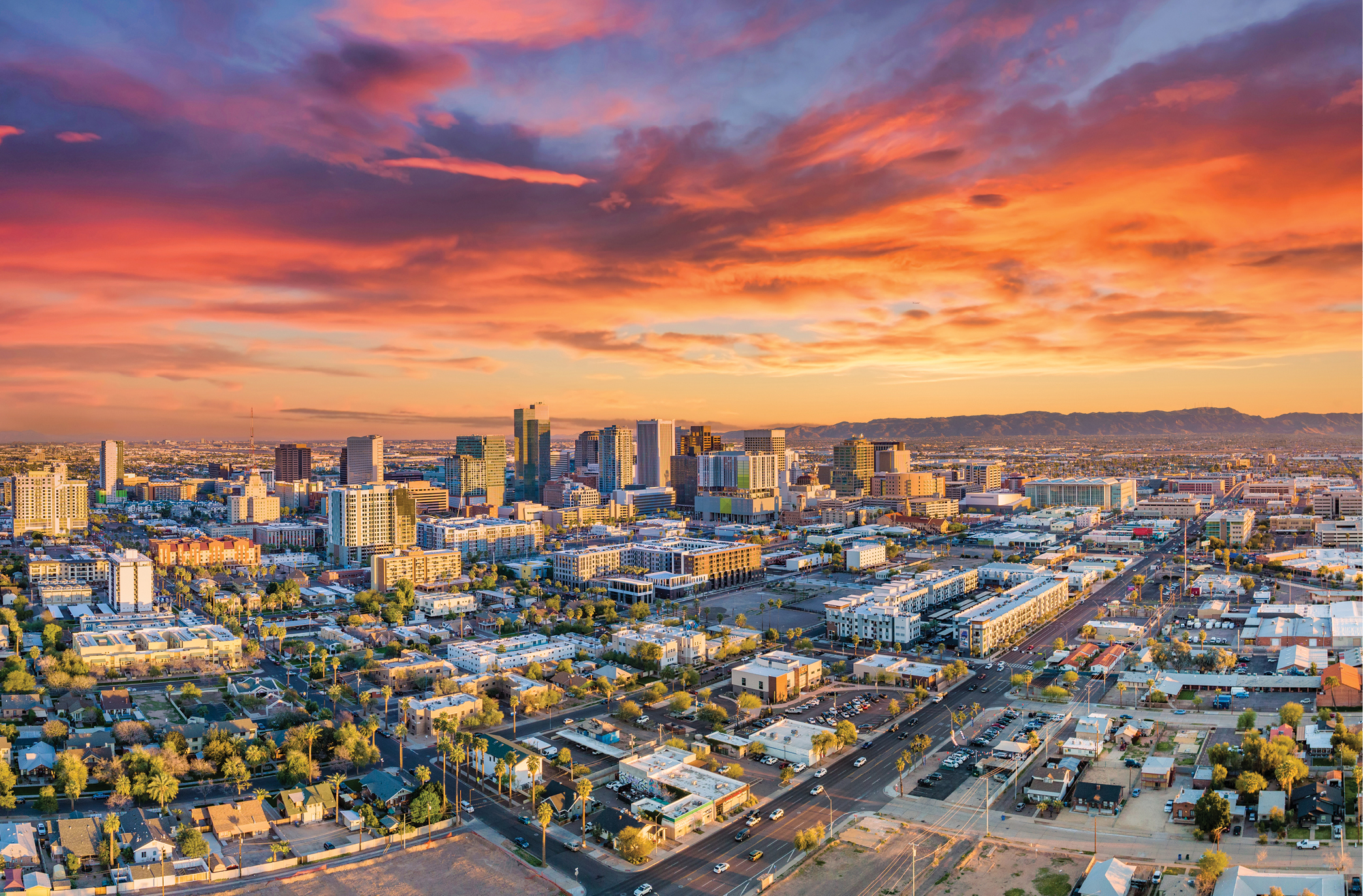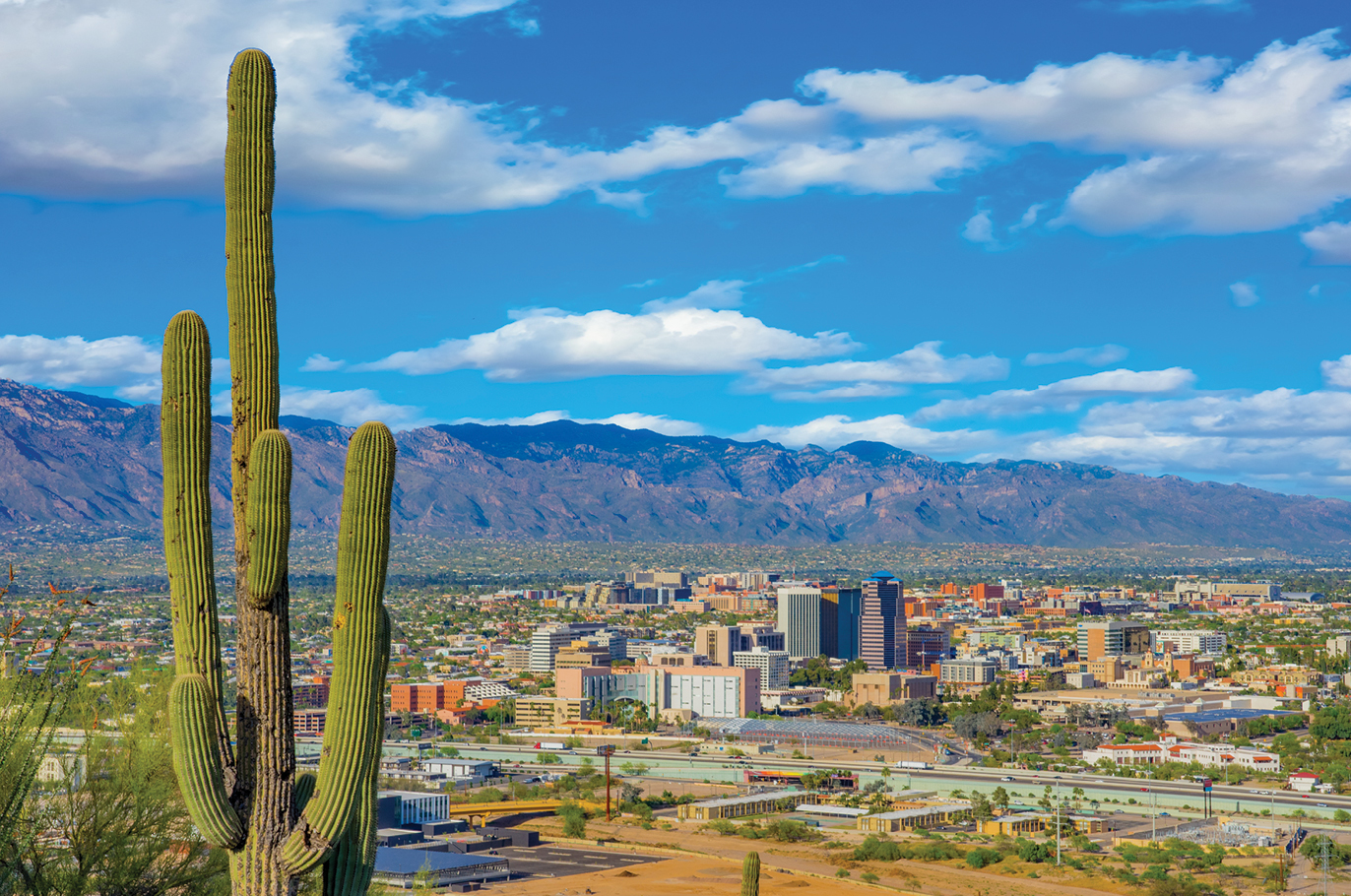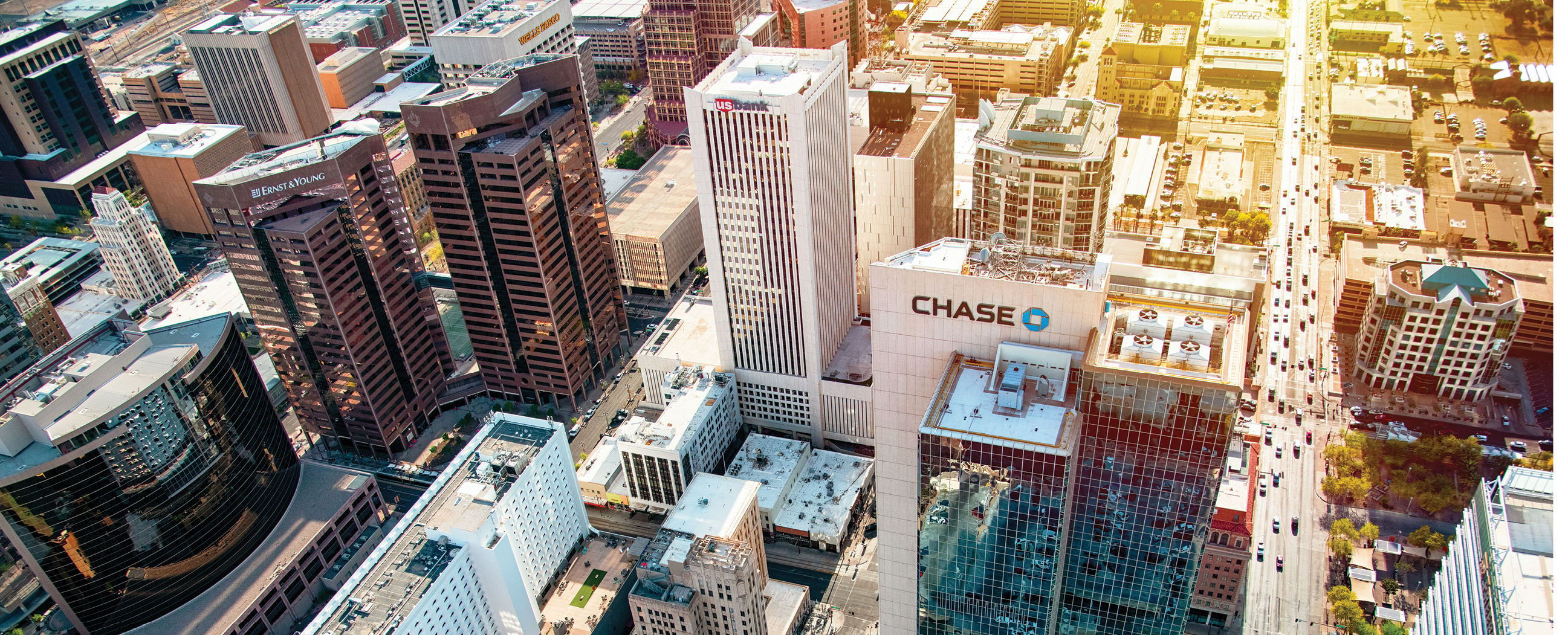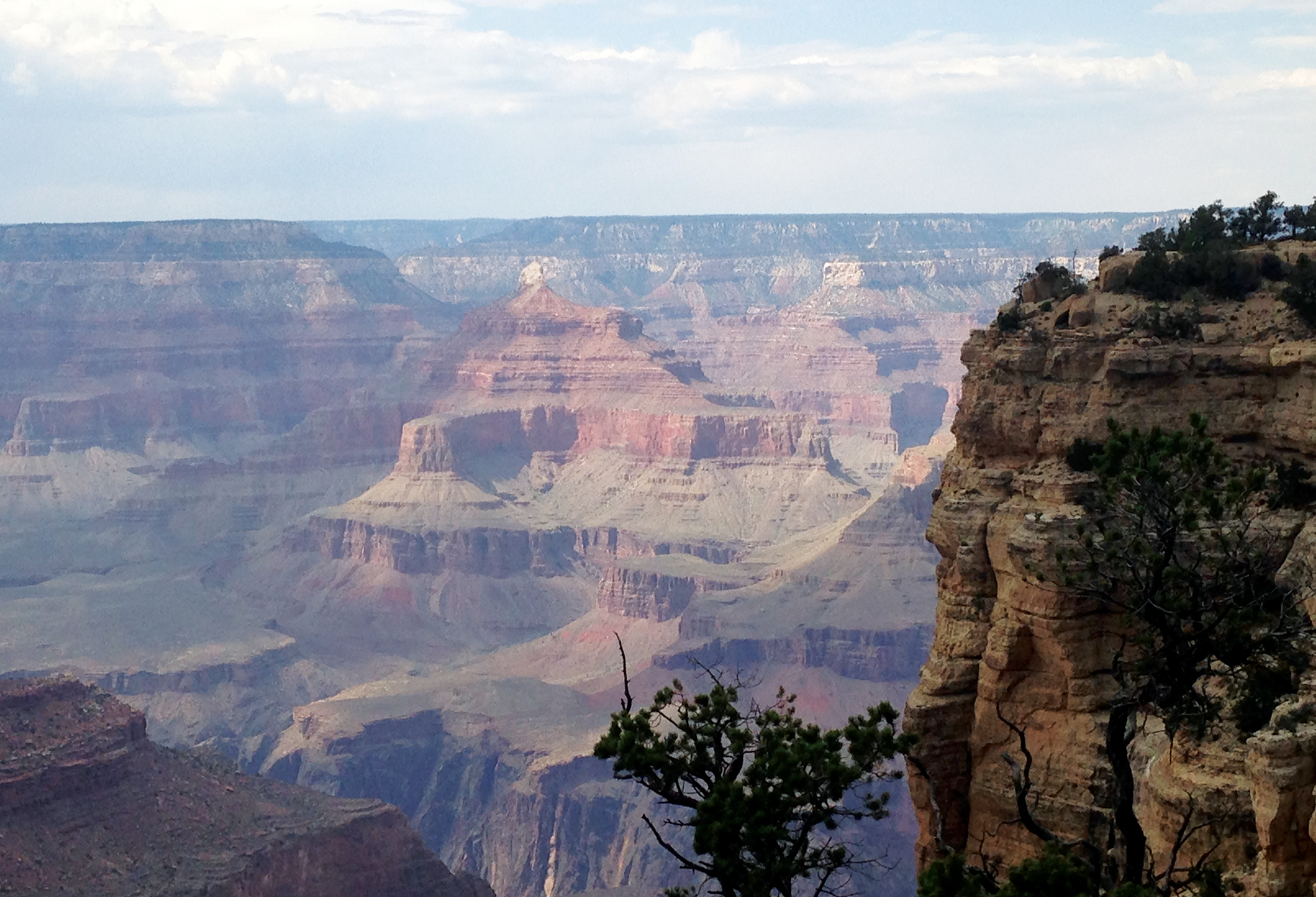Arizona raked in enough foreign direct investment projects in 2022 to make it the top state for such investment, according to FDI Markets, a unit of the Financial Times that tracks cross-border greenfield investments. By its measure, the state won projects from 35 international companies last year worth nearly $32 billion.
Global Business Alliance, which tracks international investment into the U.S., says 133,500 Arizonans are employed as a direct result of more than 890 international companies’ operations, 22% of which work in manufacturing. What’s more, from 2015 to 2020, employment by international companies grew 28% in the state compared to 10% nationally.
In December 2022, Taiwan Semiconductor Manufacturing Company said it was increasing its investment in semiconductor fabs operations from $12 billion to $40 billion by adding a second facility.
TSMC Arizona also announced it is in the planning stages for an on-site Industrial Water Reclamation Plant that when finished, will allow the TSMC Arizona site to achieve near zero liquid discharge.
“When complete, TSMC Arizona aims be the greenest semiconductor manufacturing facility in the United States producing the most advanced semiconductor process technology in the country, enabling next generation high-performance and low-power computing products for years to come.”
—TSMC Chairman Dr. Mark Liu
“When complete, TSMC Arizona aims be the greenest semiconductor manufacturing facility in the United States producing the most advanced semiconductor process technology in the country, enabling next generation high-performance and low-power computing products for years to come,” said TSMC Chairman Dr. Mark Liu at the announcement. “We are thankful for the continual collaboration that has brought us here and are pleased to work with our partners in the United States to serve as a base for semiconductor innovation.”
The first fab is scheduled to begin production of N4 process technology in 2024. The second fab is scheduled to begin production of 3nm process technology in 2026.
TSMC customers and suppliers were more than enthusiastic about the additional investment in the Phoenix metro.
Customers Push the Envelope
“At AMD, we are all about pushing the envelope in high performance and adaptive computing to solve the world’s most important challenges,” said Lisa Su, chair and CEO of AMD. “As the leader in semiconductor manufacturing, TSMC enables us to focus on what we do best: designing innovative chips that change the world. A strong, geographically diverse, and resilient supply chain is essential to the global semiconductor industry. TSMC’s investment and expansion in Arizona is extremely important and mission critical for both the semiconductor industry and our extended ecosystem of partners and customers. AMD expects to be a significant user of the TSMC Arizona fabs, and we look forward to building our highest performance chips in the United States.”
Roawen Chen, senior vice president, Chief Supply Chain & Operations Office at Qualcomm Technologies, also weighed in: “Semiconductors are a critical component of the digital economy, and having a resilient supply chain is essential as digital transformation advances across industries. TSMC’s expansion into Arizona will bring advanced semiconductor manufacturing technology to the United States, which will benefit the American fabless industry and economy at large. TSMC’s Arizona facility will strengthen the semiconductor manufacturing ecosystem in the U.S. which will enable us to serve our U.S. customers better, and as a longtime customer of TSMC, we are pleased to start leveraging the Arizona facility to manufacture our leading-edge products when production begins in 2024.”
In March, LG Energy Solution reupped on its original $1.4 billion commitment to a new cylindrical battery factory in Queen Creek, southeast of Phoenix, by pledging to construct a two-plant complex there with a total investment of $5.5 billion.
The revised project now includes $3.2 billion to build a cylindrical battery manufacturing facility for EV with a capacity of 27 GWh. LGES also plans to invest $2.3 billion in a LFP pouch-type battery facility for ESS with a capacity of 16 GWh. Both facilities are expected to break ground this year and lead to the creation of thousands of new jobs.
XNRGY wants to be part of the solution to cool hyper-scale data centers without millions of gallons of water a day.
“Our decision to invest in Arizona demonstrates our strategic initiative to continue expanding our global production network, which is already the largest in the world, to further advance our innovative and top-quality products in scale and with speed,” said Youngsoo Kwon, CEO of LG Energy Solution. “We believe it’s the right move at the right time in order to empower clean energy transition in the U.S.”
Immersion Cooling Leaves the Water Alone
Last year, Quebec-based XNRGY, one of the largest custom air handling manufacturers in North America, announced a new, 1-million-sq.-ft. manufacturing facility in Greater Phoenix, which will be designated as their headquarters. It will focus on research and development, says the company, “spearheading innovation to facilitate the rapid growth and demand for XNRGY’s mission-critical climate systems in sectors such hyperscale data center, semiconductor clean rooms, life sciences, healthcare, as well as battery manufacturing facilities.” Applying vertical integration, full automation, and eliminating supply chain delays will expedite product delivery and significantly reduce product lead times compared to the industry average.
XNRGY says it is developing solutions that will not use millions of gallons of water per day. “These systems are integrating very high-efficiency refrigerant systems coupled with proprietary machines moving the air,” according to a company release. “Immersion cooling is the next step. XNRGY wants to be part of the solution to cool hyper-scale data centers without millions of gallons of water a day.” XNRGY’s estimated investment and economic impact to Arizona of $300 million will create more than 900 employment opportunities. All construction phases are projected to be complete by June of 2025.
Taiwan Supplies the Suppliers
In October, Chang Chun Arizona (CCAZ), a leading petrochemical supplier based in Taiwan, broke ground today on its first U.S. manufacturing facility in Casa Grande. It will be operational in 2023 and create over 200 jobs. The $300-million facility will support the state’s semiconductor industry by supplying essential, high-quality electronic grade chemicals used in the manufacture of wafers.

Phoenix, Arizona
Photo: Getty Images
CCAZ explains in a statement the significance of its Arizona investment: “The company will create new, permanent, high-paying, advanced manufacturing jobs. Based on independent analysis, the CCAZ project will create permanent jobs for engineers, equipment operators, pump operators, managers, supervisors, and administrative staff. In addition to the creation of permanent jobs, this project will generate a number of project-based jobs over the phased construction schedule. These construction jobs are also expected to bring a positive economic impact to the region. Indirect jobs will be supported through demand for other local businesses based on supplier purchases, new housing demand, and consumer spending. CCAZ is also interested in supporting local job development programs and regional safety training.”
Another Taiwanese semiconductor supplier, Sunlit Chemical, announced its first U.S. manufacturing facility in Phoenix in early 2022. The project involves a $100 million total investment in two phases. A 900,000-sq.-ft. facility on 17 acres in north Phoenix will produce hydrofluoric acid and other high purity grade industrial chemicals in the first phase, which will be operational in early 2023. The remaining $50 million investment for phase two involving raw material purification will be operational in 2025.
“Sunlit is excited to expand into Arizona and this new milestone marks Sunlit’s commitment to our partners that we are ready to expand our reach beyond Asia and set sights on the global front,” said Bryan Lin, president of Sunlit Group, in a statement. “This new facility enables Sunlit to be the leading main supplier of high purity hydrofluoric acid to semiconductor fabs in the U.S. We are also equally committed to allocating considerable resources and to bring along the know-how in adhering to the highest standards of environmental and safety management, water efficiency and energy management.”
Also weighing in from Taiwan is KPCT Advanced Chemicals, a joint venture between Kanto Group, a leading semiconductor chemical supplier based in Taiwan, and Chemtrade Logistics Inc., the leading North American producer of electronic grade sulfuric acid. KPCT will build an electronic grade sulphuric acid manufacturing plant in Casa Grande. The site will occupy 10 acres and is expected to be operational by 2025, creating approximately 65 jobs.
“Kanto Group is pleased to partner with Chemtrade and to leverage both parties’ strengths to bring new high-quality sulphuric acid capacity to serve the growing North American electronic chemicals market,” noted KPPC Advanced Chemicals Inc. CEO, Jerry Lu. “The facility in Casa Grande is based on the sulfuric acid technology currently supplying the most advanced semiconductor fabs in Asia and will be an integral part of the advanced semiconductor ecosystem in the United States.”
The company says the Casa Grande facility will have a total annual capacity of 100,000 metric tons of electronic-grade acid, serving the growing North American semiconductor market. “This facility will be the first greenfield construction of an electronic-grade sulfuric acid plant in North America and is expected to provide superior reliability and consistent quality while minimizing emissions,” it states.
Meanwhile, Nestlé USA is building a $675 million beverage facility in Glendale where it will produce creamers, including the Coffee mate, Coffee mate natural bliss, and Starbucks brands, with the ability to expand to additional beverages in the future. The Swiss company says Arizona provides an ideal environment for Nestlé’s operations, offering close proximity to customers and consumers in the western U.S., reducing transport timelines and emissions. The factory will be 630,000 sq. ft. and will sit on 143.6 net acres of land. It is forecast to create 350 jobs.
The new Glendale facility is set to open in 2024, joining Nestlé USA’s network of 14 existing food and beverage factories across the U.S.The company says it will be the company’s most technologically advanced factory and distribution center, “using innovative digital tools and offering flexibility to meet the changes in consumer demand. This facility will be designed with sustainability at the forefront including: a water recycling process to reduce water usage, zero waste to landfill and fully recyclable product packaging made from food-safe recycled plastic. Also, in support of the company’s ambition for zero environmental impact in its operations by 2030, the facility will strive for 100% renewable energy by 2025.”
Tucson, Too
American Battery Factory (ABF) selected Tucson in December as the site for the first in a planned series of battery cell gigafactories based in the United States. The site will serve as ABF’s official headquarters and will be the country’s largest gigafactory for the production of lithium iron phosphate (LFP) battery cells at nearly 2 million square feet, providing an estimated $1.2 billion in capital investment, $3.1 billion in economic impact to the state and accelerating the growth of the clean energy economy across the country. The company says approximately 300 high-paying jobs will be provided in the first phase of the factory’s opening, scaling up to 1,000 cumulative jobs.
“This investment represents a generational opportunity both for us as a company and for Tucson as a community as a means to truly make energy independence a reality for everyone,” said President and CEO Paul Charles. “Batteries make shifting to an entirely green energy economy possible. With this first factory, we will secure a strategically positioned company headquarters while taking the critical first steps in making it possible to one day move the country and the entire world to 100% renewable power. We are honored to start this journey in Tucson and give back to the community through innovation, quality job creation, revenue generation and environmental protection.”
Tucson’s mayor and city council approved the City of Tucson Primary Jobs Incentive just prior to ABF’s announcement. The incentive provides up to a 100% reimbursement of construction sales tax to qualifying expenses such as required public infrastructure improvements, offsets to impact fees and job training.

Tucson, Arizona
Photo: Getty Images
ABF intends to hire 1,000 new employees over the next several years with an average salary of $65,000. Under the Primary Jobs Incentive development agreement, the company will be eligible for a maximum reimbursement of $3.965 million once construction is complete and the company demonstrates that it has met specific performance criteria.
According to City of Tucson Director of Economic Initiatives Barbra Coffee, this project demonstrates true collaboration in the region.
“The alignment among state, regional and local government entities made the decision easy for ABF,” said Coffee. “The county’s ability to move quickly with the land transaction and the commitment of local and state support makes us competitive in these efforts to attract quality industrial investments.”
Tucson is also landing more investment in the EV battery sector, with Sion Power Corporation announcing in December an expansion of its 111,400-sq.-ft. facility. The project will create more than 150 jobs and should be completed in 2026. The company cites Tucson’s “rich history, access and availability of quality and skilled employees in the Tucson community.”
“The global construction of battery manufacturing plants is occurring at a rapid pace, and the United States can’t be left behind,” said Tracy Kelley, CEO of Sion Power at the expansion announcement. Mr. Kelley went on to say, “With our facility expansion in Tucson, Arizona, it will allow Sion Power to further our mission of scaling battery manufacturing from research and development to commercialization. This enables us to better serve our customers and their applications.”
Sion Power’s facility expansion will be equipped with fully automated battery cell production capabilities, including proprietary lithium metal anode manufacturing, cell assembly and testing.
Kidder Mathews on the Phoenix Industrial Market, 1Q23

Phoenix, Arizona
Photo: Getty Images
Highlights from West Coast commercial real estate firm Kidder Mathews’ analysis of the Phoenix industrial market are mostly good news:
MARKET DRIVERS
- Deliveries reached an all-time high in 2022, expanding the market’s inventory by almost 10% and is projected to hit yet another record year in 2023. With a record setting 56M SF in the development pipeline, the Phoenix metro now ranks second in the nation for industrial construction activity, just after Dallas, Texas.
- Robust demand coupled with record-low vacancies have driven asking rents across the market to record rates, posting at $0.98/SF on a triple-net basis in 1Q. The Valley has positioned itself as one of the top markets in not only national supply chains but is emerging as a critical market in advanced manufacturing as well.
- While investors and developers remain highly attracted to the Phoenix market, higher interest rates and economic uncertainty in the past year are resulting in sales volume to wane. Transaction activity hit a 10-year record low in Q1 with just 2.4M SF that traded. However, sales prices still hover around the record high at $166/SF, indicating the market is still holding strong with buyer competition from many out-of-state and local investors.
ECONOMIC OVERVIEW
- Phoenix ranked third in the nation for job growth in the start of the year, with a net gain of over 19,000 nonfarm jobs in January. Additionally, Phoenix metro’s labor market now has nearly 100,000 more jobs locally than pre-pandemic levels, making it the fifth highest gain the nation.
- According to the Arizona Office of Economic Opportunity, Phoenix metro’s unemployment rate in November increased 20 basis points YOY to 3%. This is compared to the state’s adjusted rate of 4.1% and national rate of 3.7%.
NEAR TERM OUTLOOK
- The Phoenix industrial market is continually one of the top performing markets in the nation, growing exponentially while showing resilience in the face of the pandemic and economic downturns. The market has gained tremendous momentum for a positive outlook in the coming quarters. A challenge going forward may be just how sustainable the growth will be with the slight cooldown of the economy.
- The industrial market’s inventory will expand by approximately 12% by year’s end, when a majority of the projects currently underway are set to deliver. As much of the development is speculative and being delivered without a tenant in place, the market may be vulnerable to a temporary spike in vacancies as the overwhelming construction activity is expected to outweigh new demand. However, the strong demand drivers in Phoenix will work to support the industrial fundamentals in the long term.

